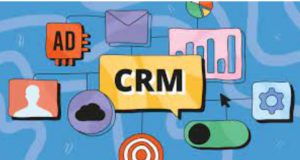Introduction
Customer Relationship Management (CRM) software has become a cornerstone of modern business operations. CRM systems help organizations manage customer interactions, streamline sales processes, and enhance customer satisfaction. However, before making a CRM investment, it’s essential to explore and understand the platform’s capabilities through a CRM demo. In this article, we’ll delve into the significance of CRM demos, what to expect during a demo, and how to make the most of this crucial step in CRM selection. 
The Importance of CRM Demos
H2: The Importance of CRM Demos
A CRM demo is much more than a routine presentation. It’s an opportunity for businesses to:
1. Evaluate Functionality
A CRM demo allows you to explore the CRM system’s features and capabilities firsthand. You can see how it aligns with your specific business needs, from lead management and sales automation to customer support and analytics.
2. Assess User-Friendliness
During a CRM demo, you can gauge the user-friendliness of the software. Is the interface intuitive, and can your team easily adapt to it? User adoption is crucial for CRM success.
3. Understand Customization
CRM demos offer insights into customization options. Can you tailor the system to match your unique processes and workflows? Customization can greatly impact how well the CRM fits your business.
4. Evaluate Integration
Most businesses rely on multiple tools and applications. A CRM demo helps you assess how well the CRM system integrates with your existing software stack, ensuring seamless data flow.
5. Experience Support and Training
A demo is an opportunity to interact with the CRM provider’s support team and understand their approach to customer training and assistance. This is vital for ongoing success and problem resolution.
What to Expect During a CRM Demo
H2: What to Expect During a CRM Demo
When you schedule a CRM demo with a provider or vendor, here’s what you can typically expect:
1. Introduction
The demo usually begins with introductions and an overview of the CRM provider’s background. This is an opportunity for you to learn about the company’s experience and expertise.
2. Needs Assessment
The CRM provider will ask questions to understand your business’s unique needs and objectives. This helps tailor the demo to showcase features that align with your requirements.
3. Live Walkthrough
The core of the demo involves a live walkthrough of the CRM system. The presenter will demonstrate key features, navigation, and functionality. Pay attention to how the CRM addresses your specific pain points.
4. Customization Options
The demo should cover customization options, such as adding fields, automating processes, and configuring dashboards. Assess the flexibility of the CRM in adapting to your workflows.
5. Integration and Compatibility
You’ll learn about the CRM’s compatibility with other tools and applications. Discuss integration possibilities and how data can flow seamlessly between systems.
6. User Training and Support
The CRM provider should explain their approach to user training and ongoing support. Clarify how they handle troubleshooting and address user concerns.
7. Pricing and Licensing
While not always covered in detail during the demo, pricing and licensing discussions are typically part of the process. Be prepared to ask about costs and contractual terms.
Making the Most of Your CRM Demo
H2: Making the Most of Your CRM Demo
To ensure you get the most value from your CRM demo, follow these guidelines:
1. Prepare Questions
Before the demo, list specific questions and concerns related to your business needs. This will help you stay focused on your priorities during the presentation.
2. Involve Key Stakeholders
Invite team members who will be using the CRM to participate in the demo. Their insights and questions are invaluable in assessing the system’s suitability.
3. Request a Hands-On Experience
Ask if you can interact with the CRM system during the demo. A hands-on experience provides a deeper understanding of the software’s usability.
4. Discuss Data Migration
If you’re transitioning from an existing CRM or database, inquire about data migration. Understand the process and any associated costs.
5. Evaluate User Training
Assess the training and onboarding resources offered by the CRM provider. Adequate user training is essential for successful adoption.
6. Clarify Support Channels
Discuss the CRM provider’s support channels, response times, and service level agreements (SLAs). Ensure you’re comfortable with their support approach.
7. Compare Multiple Demos
If you’re considering multiple CRM providers, schedule demos with each. This allows for direct comparisons of features, usability, and support.
Conclusion
A CRM demo is a pivotal step in the CRM selection process. It offers a firsthand look at how a CRM system aligns with your business needs, workflows, and goals. By preparing questions, involving key stakeholders, and evaluating customization and support options, you can make an informed decision about the CRM solution that best serves your organization. Remember that the CRM demo is not just a presentation but a strategic opportunity to unlock the full potential of CRM technology for your business